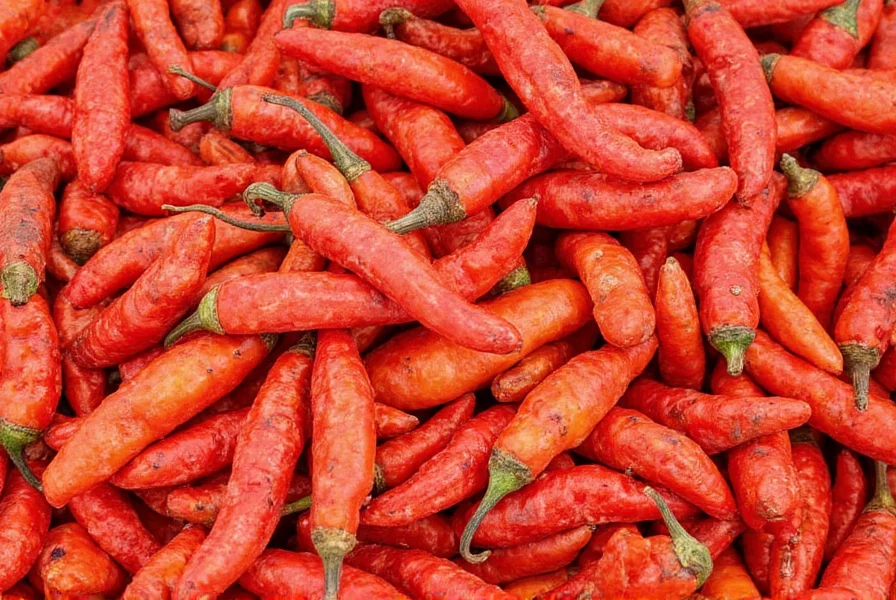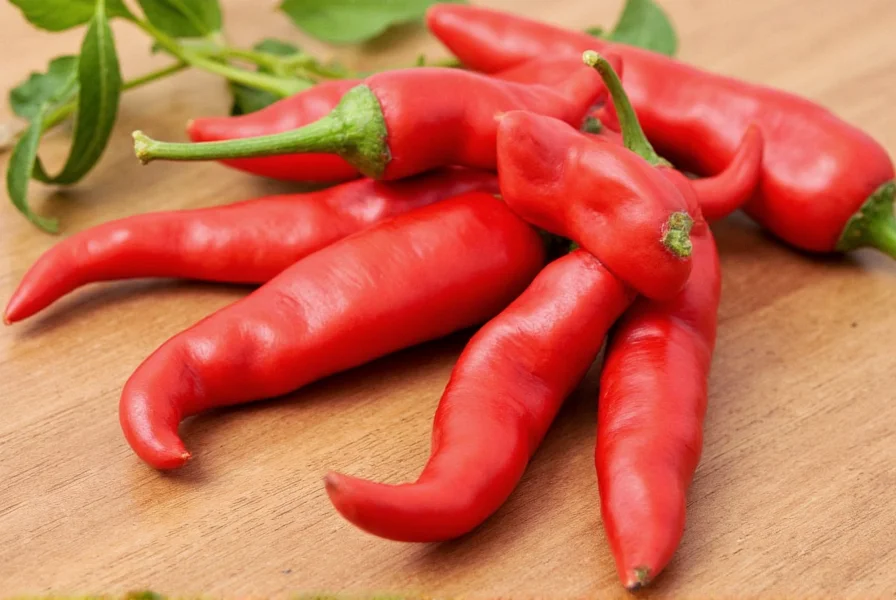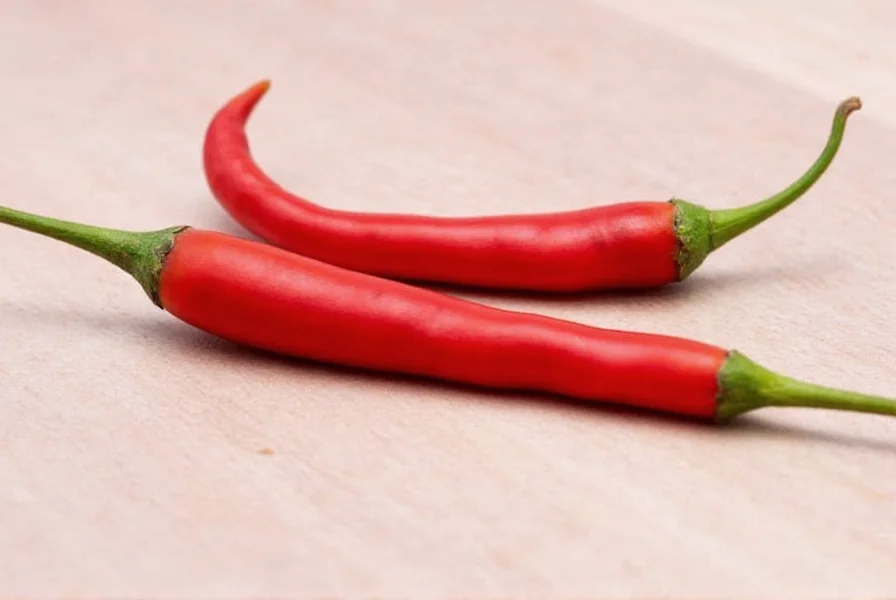Many people wonder does cayenne pepper lower blood pressure as a natural alternative to medication. While preliminary research shows some promise, the evidence remains inconclusive for clinical application. This article examines what current science reveals about cayenne pepper's potential effects on blood pressure, separating fact from popular claims.
The Science Behind Cayenne Pepper and Blood Pressure
Cayenne pepper contains capsaicin, the compound responsible for its heat. Research indicates capsaicin may influence blood pressure through several biological pathways. When consumed, capsaicin activates TRPV1 receptors, which can trigger the release of nitric oxide—a compound that helps blood vessels relax and dilate.
A 2016 study published in Cell Metabolism found that chronic capsaicin consumption reduced blood pressure in hypertensive rats. The researchers observed a 15-20 mmHg decrease in systolic pressure after several weeks of daily capsaicin administration. However, translating these animal findings to humans requires caution.

Human Research on Cayenne Pepper Blood Pressure Effects
Human evidence remains limited compared to animal studies. A small 2013 clinical trial in Pharmacology Research & Perspectives examined capsaicin's acute effects on 21 healthy adults. Participants who consumed capsaicin showed a temporary 5-8 mmHg reduction in systolic blood pressure within 30 minutes, but the effect lasted less than two hours.
Another study in Nutrition Journal followed 50 adults with mild hypertension for 8 weeks. The group taking daily capsaicin supplements experienced an average 4.5 mmHg reduction in systolic pressure compared to placebo. While statistically significant, this change falls below the 10 mmHg reduction typically considered clinically meaningful for cardiovascular risk reduction.
| Study Type | Participants | Blood Pressure Change | Duration |
|---|---|---|---|
| Animal (rats) | 30 hypertensive rats | 15-20 mmHg reduction | 4 weeks |
| Human acute study | 21 healthy adults | 5-8 mmHg reduction | 2 hours |
| Human clinical trial | 50 mild hypertension | 4.5 mmHg reduction | 8 weeks |
How Cayenne Pepper Might Affect Blood Pressure
The potential blood pressure-lowering mechanism of cayenne pepper involves several physiological processes:
- Vasodilation: Capsaicin stimulates nitric oxide production, which relaxes blood vessel walls
- Calcium channel effects: May influence calcium movement in vascular smooth muscle
- Anti-inflammatory properties: Chronic inflammation contributes to hypertension
- Improved circulation: Creates temporary sensation of warmth and increased blood flow
It's important to understand that the blood pressure effects from dietary cayenne pepper consumption differ significantly from concentrated capsaicin supplements used in research. The amount of capsaicin in typical culinary use is much lower than doses used in clinical studies examining blood pressure effects.
Safety Considerations for Blood Pressure Management
While cayenne pepper is generally safe as a food ingredient, certain precautions apply for those monitoring blood pressure:
- May interact with blood pressure medications, potentially causing excessive lowering
- Can cause gastrointestinal discomfort in sensitive individuals
- May temporarily increase heart rate in some people
- Not recommended for those with bleeding disorders or before surgery
Individuals taking ACE inhibitors, calcium channel blockers, or other antihypertensive medications should consult their healthcare provider before significantly increasing cayenne pepper intake. The question of can cayenne pepper lower blood pressure when taking medication requires professional medical guidance to avoid potential complications.
Realistic Expectations for Natural Blood Pressure Support
When considering does cayenne pepper help lower high blood pressure as part of a comprehensive approach, evidence suggests:
- Effects appear modest and temporary compared to prescribed medications
- May complement—but not replace—established lifestyle modifications
- Most significant benefits likely come from overall dietary patterns rather than single ingredients
- Long-term blood pressure control requires consistent lifestyle approaches
The American Heart Association emphasizes proven strategies for blood pressure management including the DASH diet, regular exercise, sodium reduction, and maintaining healthy weight. While spices like cayenne pepper may contribute to a heart-healthy diet, they represent just one component of a comprehensive approach.

Practical Recommendations
If you're interested in exploring cayenne pepper for blood pressure support:
- Use it as part of a balanced, heart-healthy diet rather than relying on it as a primary intervention
- Start with small culinary amounts (1/8 to 1/4 teaspoon daily) to assess tolerance
- Monitor your blood pressure regularly if adding significant amounts to your diet
- Never discontinue prescribed blood pressure medication without consulting your doctor
- Discuss any dietary changes with your healthcare provider, especially if managing hypertension
Remember that the question how much cayenne pepper to lower blood pressure doesn't have a definitive answer, as individual responses vary and research hasn't established therapeutic dosing. The most effective blood pressure management strategies remain those with strong scientific support through large-scale clinical trials.
Conclusion
Current evidence suggests cayenne pepper may offer modest, temporary blood pressure benefits through its capsaicin content, but it shouldn't replace conventional hypertension treatments. The research on does cayenne pepper lower blood pressure in humans remains preliminary, with most compelling evidence coming from animal studies or small human trials. For those managing high blood pressure, proven lifestyle modifications and prescribed medications remain the cornerstone of effective treatment. Cayenne pepper can be a flavorful addition to a heart-healthy diet but shouldn't be viewed as a standalone solution for blood pressure control.
Frequently Asked Questions
How quickly does cayenne pepper affect blood pressure?
Research shows any blood pressure effects from cayenne pepper typically occur within 30-60 minutes of consumption but last only 1-2 hours. The 2013 human study found a temporary 5-8 mmHg reduction in systolic pressure that wasn't sustained beyond two hours. Long-term blood pressure management requires consistent lifestyle approaches rather than temporary effects from single ingredients.
Can I take cayenne pepper with blood pressure medication?
Consult your healthcare provider before combining cayenne pepper with blood pressure medications. Capsaicin may enhance the effects of certain medications like ACE inhibitors or calcium channel blockers, potentially causing blood pressure to drop too low. Your doctor can help determine if culinary amounts are safe with your specific medication regimen.
What's the difference between cayenne pepper and capsaicin for blood pressure?
Capsaicin is the active compound in cayenne pepper responsible for potential blood pressure effects. Most research showing significant effects uses concentrated capsaicin supplements (typically 2-6 mg daily), not culinary cayenne pepper. The amount of capsaicin in typical dietary use of cayenne pepper is much lower and unlikely to produce the same effects as the concentrated doses used in studies.
Are there better natural options for lowering blood pressure than cayenne pepper?
Several natural approaches have stronger evidence for blood pressure management than cayenne pepper. These include the DASH diet (rich in fruits, vegetables, and low-fat dairy), regular aerobic exercise, reducing sodium intake, increasing potassium-rich foods, and maintaining a healthy weight. Supplements like aged garlic extract and hibiscus tea show more consistent evidence for modest blood pressure reduction compared to cayenne pepper.
Can cayenne pepper cause high blood pressure instead of lowering it?
Some people experience a temporary increase in heart rate after consuming cayenne pepper, which might cause concern. However, research generally shows either neutral or modest lowering effects on blood pressure. The initial sensation of heat may create a perception of increased blood pressure, but actual measurements typically show either no change or slight reduction. Those with cardiovascular conditions should monitor their response and consult their doctor.











 浙公网安备
33010002000092号
浙公网安备
33010002000092号 浙B2-20120091-4
浙B2-20120091-4